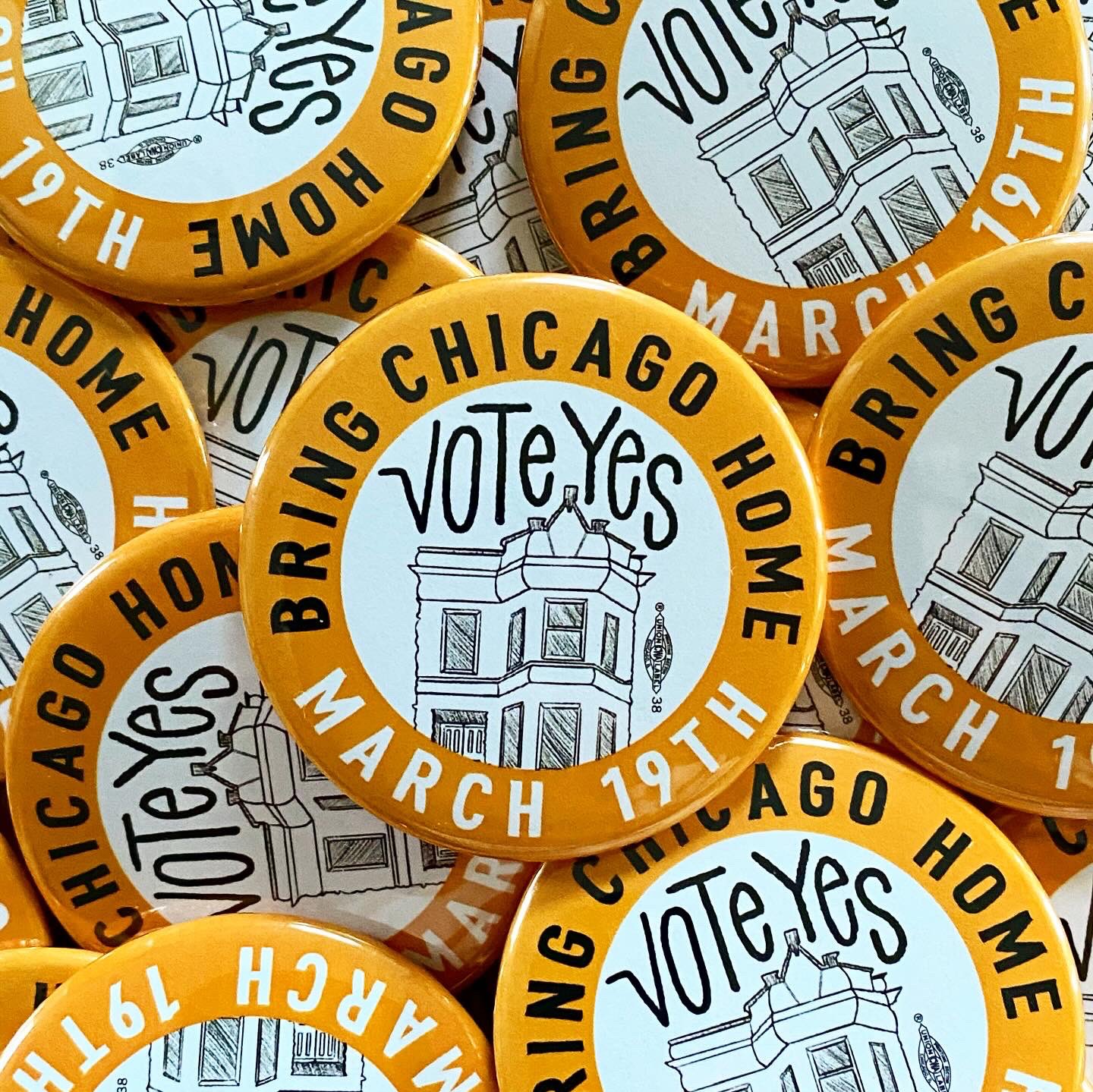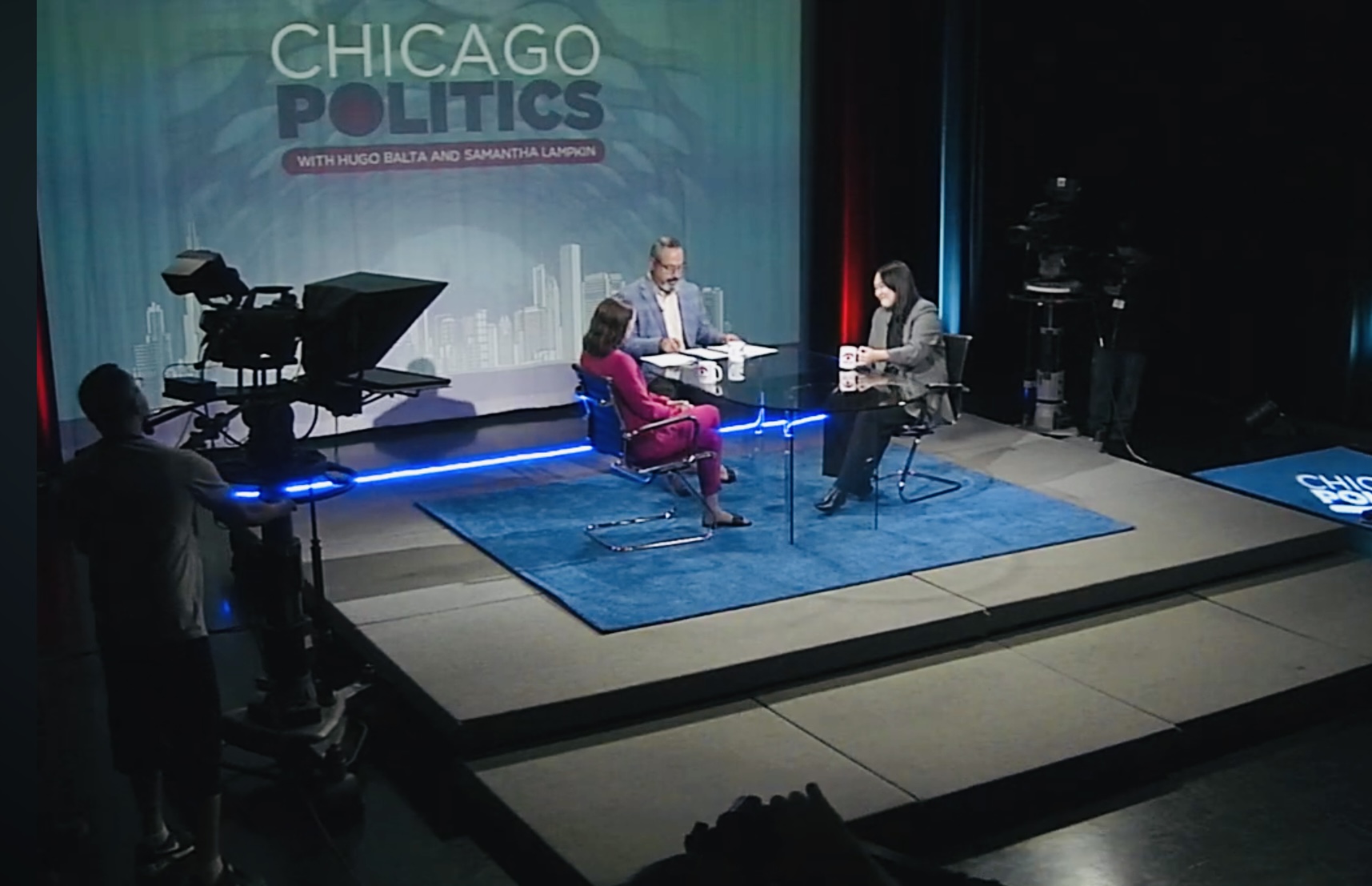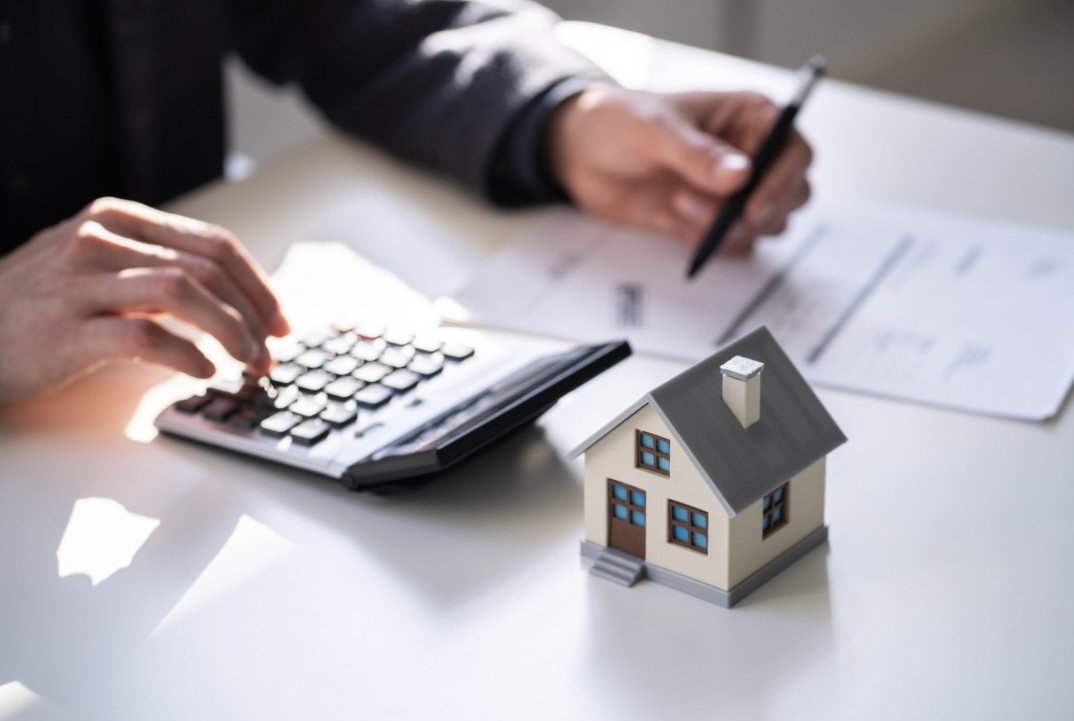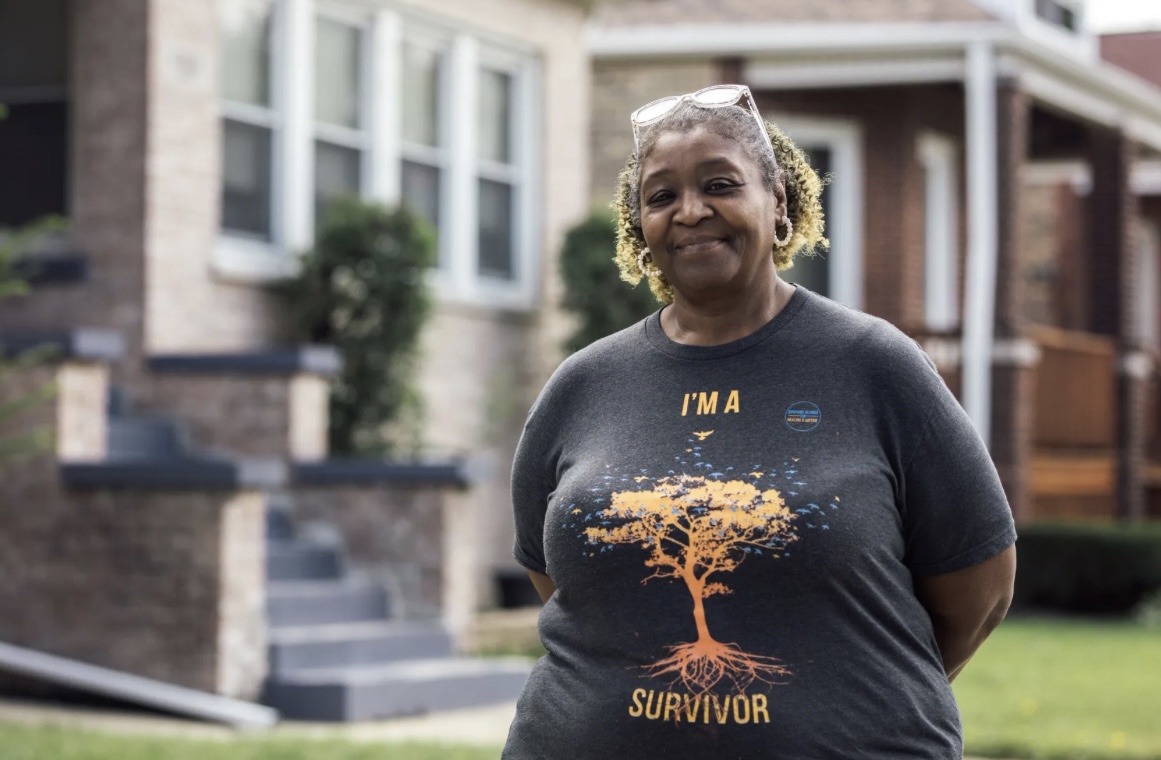(UPDATE: The Illinois Supreme Court has rejected an appeal from the Building Owners and Managers Association to overturn the results of a contentious real estate tax referendum on Chicago’s 2024 primary ballot. This decision confirms that the votes on the measure will stand and be counted.)
CHICAGO ⸺The night before her first day of college, 23-year-old Samantha Caldera said she stayed up and cried with her cousins because they knew they couldn’t do anything to change their housing situation.
Caldera was living doubled up at her grandparents’ three-bedroom home in Maplewood, Chicago, at the time, along with eight other relatives, an experience she said often led her to feel “stuffed” in her own home.
“We felt helpless because we were all just students who could not contribute to a big solution,” Caldera said.
“Doubling-up,” or when a person temporarily lives with others, is the most common way members of the Latinx community experience homelessness, according to a report by the Chicago Coalition For The Homeless.
SUGGESTION: ‘Doubling Up’ Homelessness: An Invisible Crisis
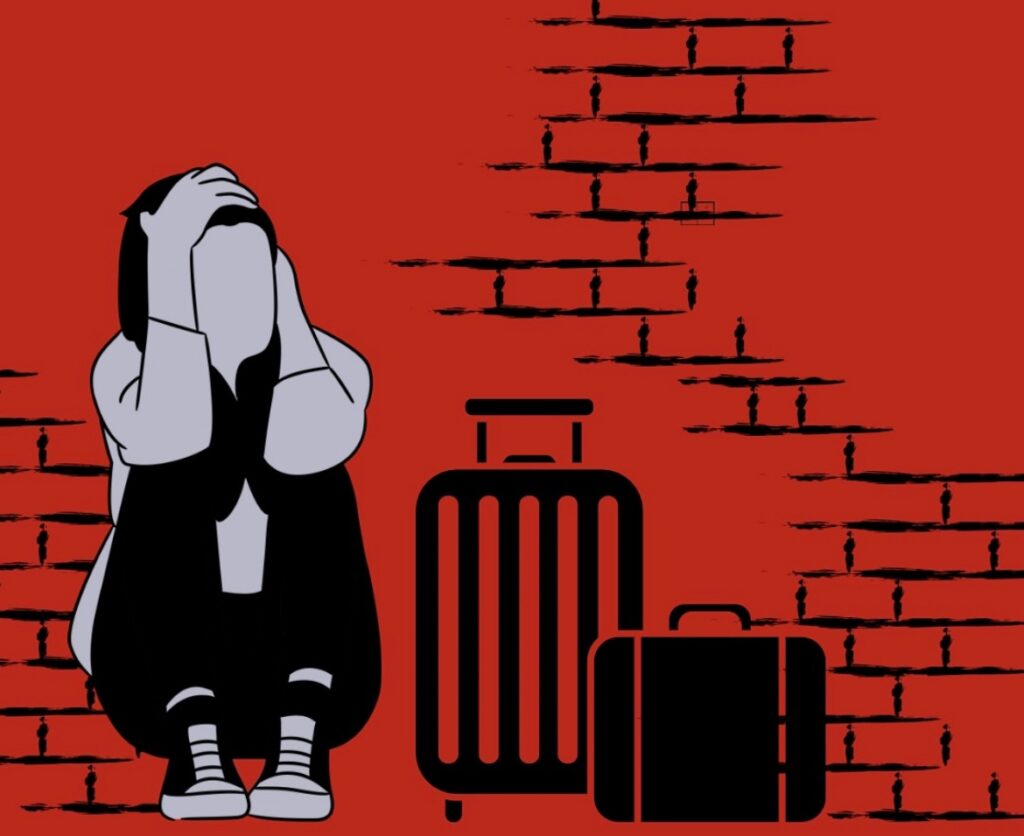
The fate of the Bring Chicago Home referendum proposing an increase in the city’s real estate transfer tax for properties over $1 million, with the extra funds earmarked for affordable housing and services for the unhoused, is uncertain.
Chicago’s City Council passed the ordinance last November, but with only weeks until the March 19 primary, the policy is in limbo after a group of real estate industry groups sued to block the ballot measure, the Chicago Sun-Times reported.
The question will remain on the ballot, but the results will only be tallied and reported if Cook County Judge Kathleen Burke’s decision is overturned by a state appeals court, according to WTTW.
Salvador Delgado, an organizer with Bring Chicago Home, said that at 21, he was living at his friend’s one-bedroom apartment after losing contact with his Mexican-American family for coming out as gay to them.
“My mental health was so bad, I developed extreme anxiety, depression, and that eventually just festered so bad it started affecting my school and my work, so I lost my job…” Delgado said. “That led me to lose housing, like getting evicted, me having to drop out of school so I could work full-time hours to figure out my situation.”
“It was one of the darkest times of my life,” he said.
Delgado spent a long time couch-surfing, but once he received his degree in paralegal studies and got an apprenticeship, his life began to change significantly. He is pursuing a public policy degree at the University of Illinois Chicago (UIC).
Through his experience, he started to realize that homelessness “it’s not only a housing issue, it’s also a mental health issue, it’s also a socio-economic issue, it’s also a racial issue.”
SUGGESTION: Jose Muñoz: Living Invisibly
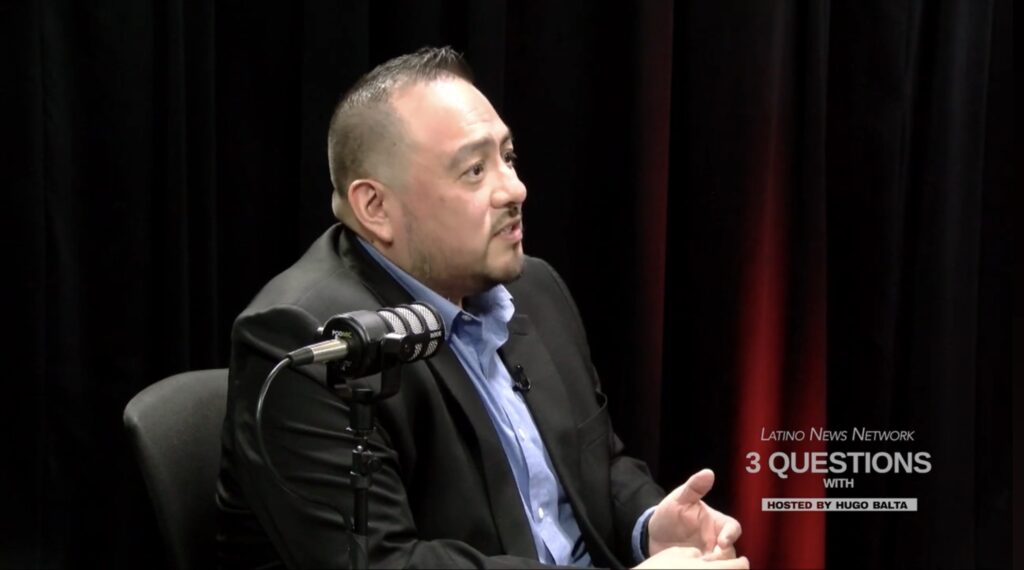
There are over 68,000 Chicagoans experiencing homelessness, and nearly 45,000 of them live doubled-up, according to a 2023 estimated data report from the Chicago Coalition For The Homeless.
Centuries of racist housing practices, redlining, and gerrymandering have led Black Chicagoans to account for 53% of all people experiencing homelessness despite only making up 29% of the city’s total population, according to the report. Moreover, out of nearly 20,000 Latinx people experiencing homelessness, 91% are in doubled-up situations, according to the same report.
The Building Owners and Managers Association of Chicago (BOMA) was among the various industry groups that argued the ballot question was unconstitutional and violated Illinois law by asking voters to approve a tax hike and tax cut simultaneously.
Amy Masters, Director of Government and External Affairs at BOMA, said Bring Chicago Home would be a “huge impediment” for investors across the city.
“The transfer tax would quadruple for these buildings downtown. And in the city of Chicago, we already have the highest commercial property taxes,” she said.
Masters added that if the tax increases in the city, many investors may take their business elsewhere, impacting “job creation” opportunities.
“Maybe they go to Nashville, maybe they go to Austin, you name it, but they go somewhere else, and that means they’re not investing their money here…” she said. “When someone buys a building downtown, they are typically going to do some work. And in Chicago, that means union jobs.”
Advocates anticipate that the increase in tax rates would generate approximately $100 million per year for wraparound services. Still, Master argues that “It is not necessarily income that you can count on every single year.”
Ald. Maria Hadden (49th), the author of the measure, said, “It’s kind of a disingenuous argument” because sales taxes fluctuate annually, and it comes down to the “management of the funds and the programming.”
“There are a lot of other social factors and barriers, and so we need to continue to adapt whatever we’re doing, which is why I think another key part of this is our advisory board,” Hadden added.
Major U.S. cities like Denver, Seattle, Los Angeles, and San Francisco have already created dedicated revenue streams to help curb the homeless crisis, but some have faced issues.
In December 2022, California Mayor Karen Bass announced the ‘Inside Safe’ program, which placed homeless people temporarily into motels intending to get them permanent housing and resources for substance abuse and mental health counseling, according to a November report by NBC Los Angeles.
The program has moved only about 4% of the city’s 46,000 homeless inside into motel rooms and has found permanent housing for only about 255 of them, reports show.
In 2020, Chicago launched a Rapid Re-Housing intervention program that helped people who “don’t need intensive and ongoing support to quickly exit homelessness and return to permanent housing,” according to the city’s website.
Hadden said the rehousing program was “very successful,” but it is supported with federal COVID-19 relief funds that will run out by 2025.
“If we don’t pass Bring Chicago Home, then we’re going to be back in the position where we were, which was a small amount of money…” she said. “Most of the funds that we have for like housing instability or housing insecurity come from the federal government and they come with a lot of restrictions.”
Although for the past seven months, Samantha Caldera has lived in stable housing with her twin sister and mother in Garfield Ridge for the first in her life, she said she will never forget what it was like to experience homelessness.
“Someone who experiences something like that, it never truly goes away because it lives in your trauma.” She said, “It lives in your past, and it lives in the system; that is why it keeps happening.”
Cover Photo Credit: Bring Chicago Home
Publisher’s Notes: The Latino Policy Forum and Illinois Latino News (ILLN) are partners in a two-year long public awareness campaign illuminating the most common form of homelessness experienced in the Latinx community, which is through ‘doubling-up’ or when a person temporarily lives with others.
The Latino Policy Forum supports the Bring Chicago Home campaign.
Illinois Latino News and Latino Policy Forum, thanks the generous support of Chicago Funders to End Homelessness (CFTEH) in providing the funding to make the special coverage possible.
You can support stories like this one by donating to IL Latino News, HERE.
